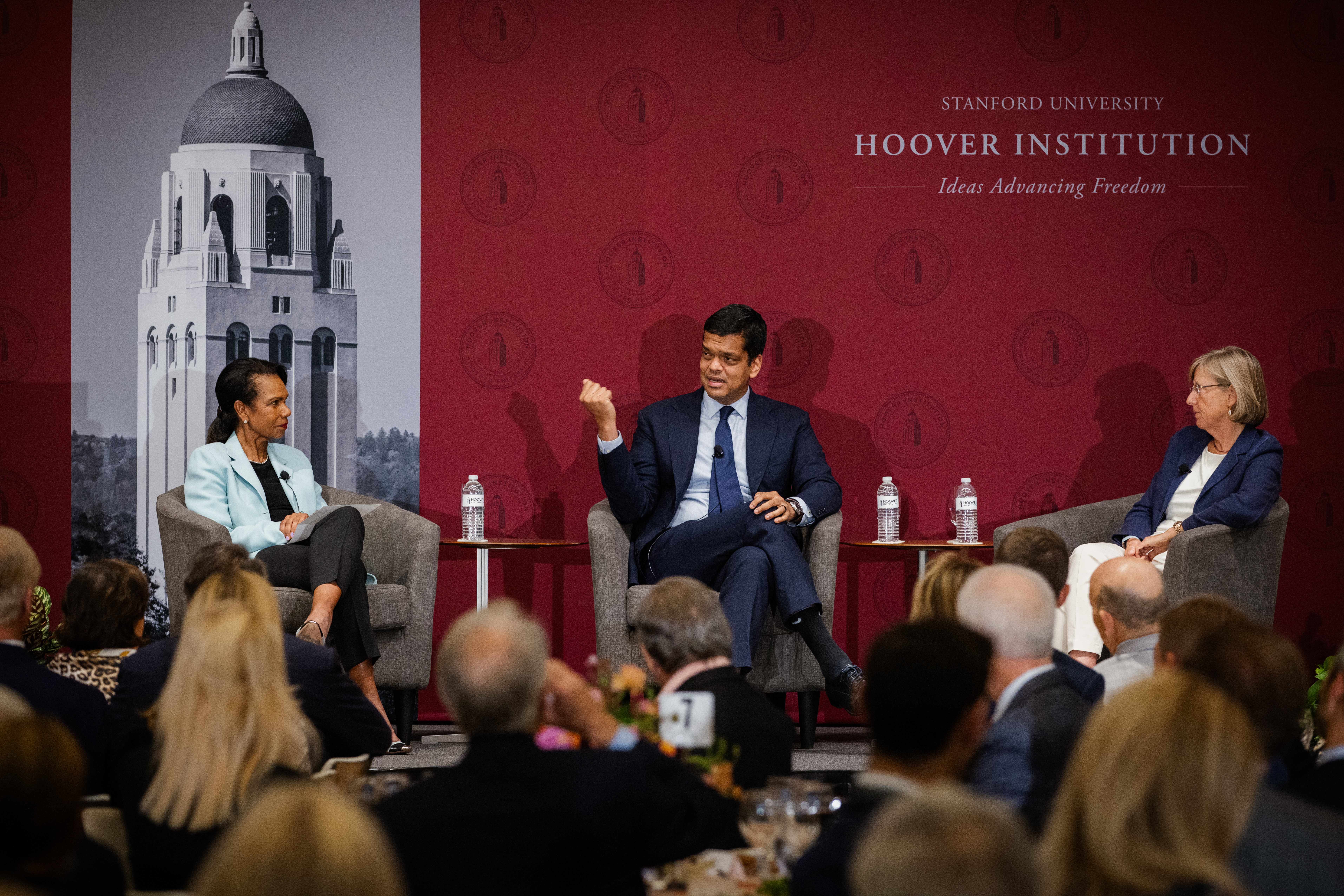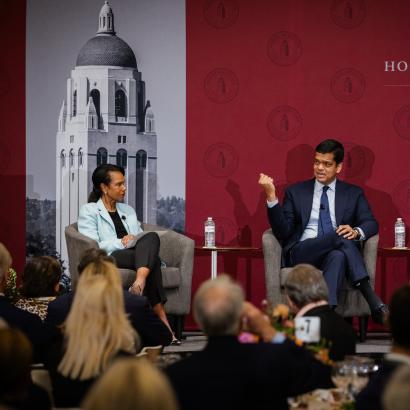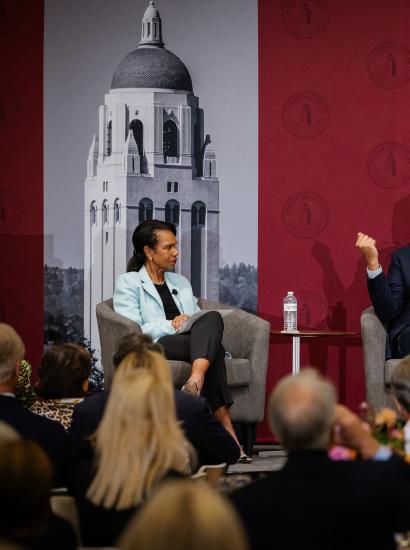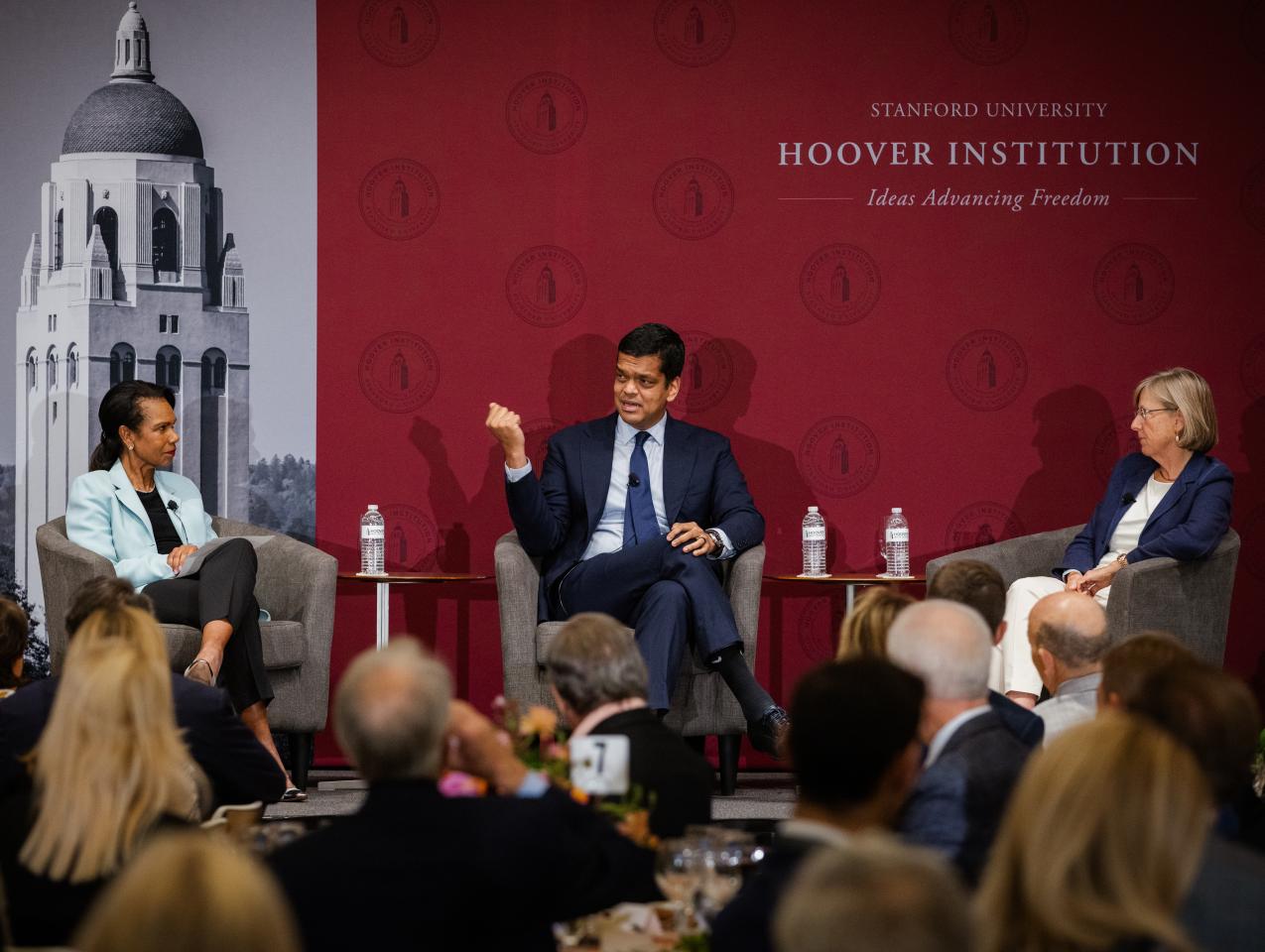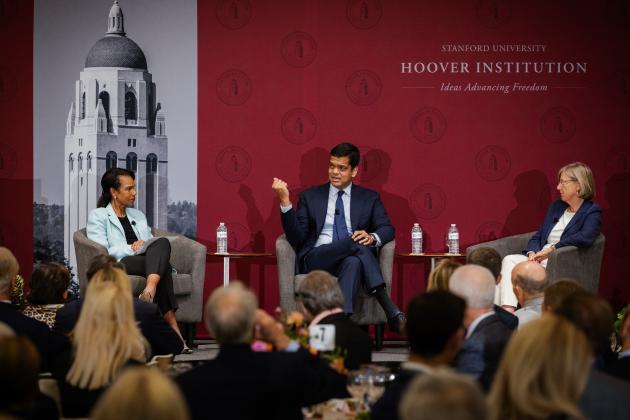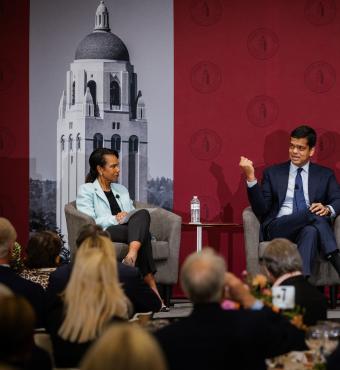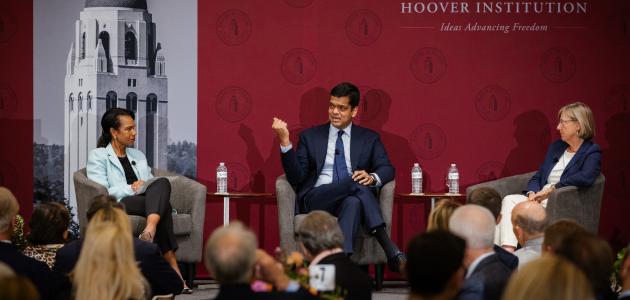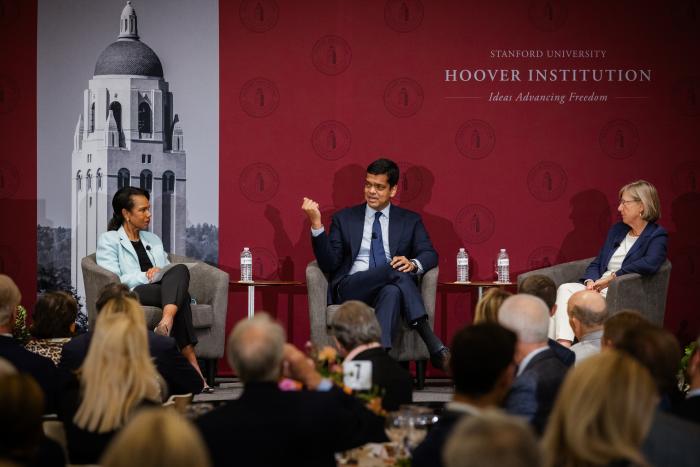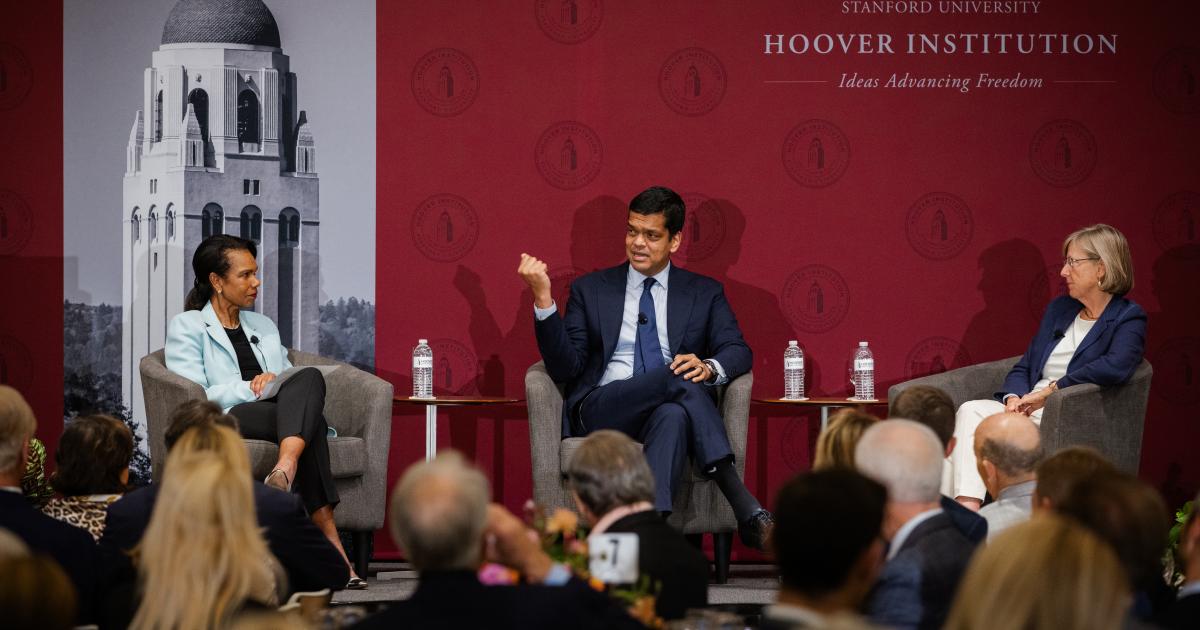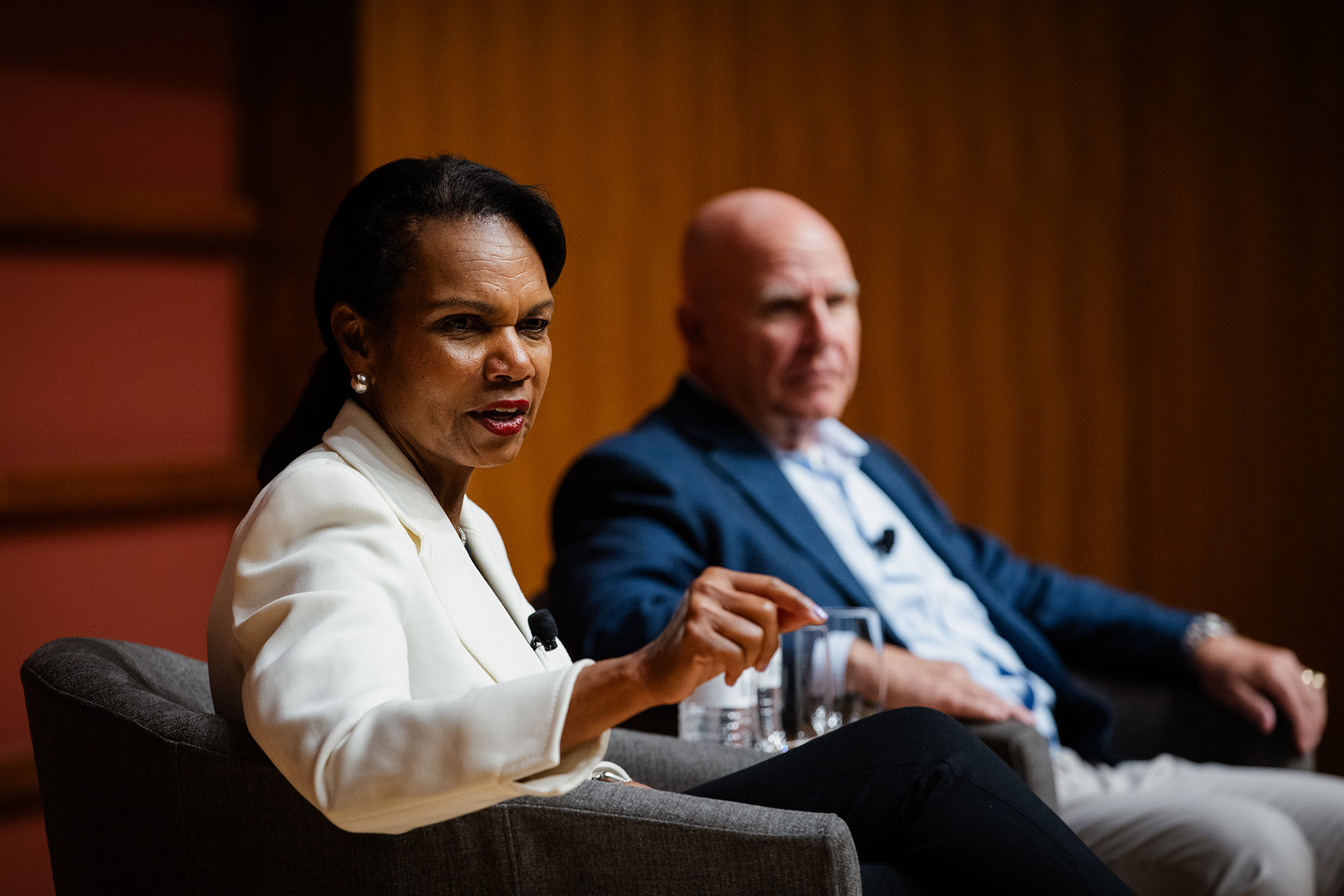
Hoover Institution (Stanford, CA) — Senior Hoover scholars spoke alongside some rising stars and honored guest speakers brought a wide range of insights to the Hoover Institution’s 2025 Summer Board of Overseers meeting July 8–10, 2025.
On a range of topics, from China’s economic performance and the rising US federal debt to the future of higher education, guests heard how Hoover is developing new research- based insights into the issues that will shape America’s future. Hoover also welcomed a senior advisor to the White House on artificial intelligence, as well as a new fellow who has deep knowledge of Israel’s security situation as it fights multiple wars against its neighbors.
H.R. McMaster and Condoleezza Rice on the Axis of Aggressors

Senior Fellow H.R. McMaster and Hoover Institution Director Condoleezza Rice shared perspectives on the vital and timely work of the Hoover Institution amid mounting global and domestic challenges. They reflected on the “uncommon commitment” required from leaders and institutions to preserve democratic resilience and informed policymaking. They stressed that there are clear signs that what McMaster calls the “Axis of Aggressors” has “overplayed its hand,” with Iran’s regime heavily weakened after Israeli and US airstrikes, Russia continuing to grind its fighting-age male population into dust on the frontlines in Ukraine, China’s economy languishing, and North Korea remaining one of the poorest and most isolated nations on earth. Regarding Iran, they point out that Russia was unable or unwilling to send any meaningful help to the regime as it was being bombarded by Israel.
Global uncertainty about trade aside, McMaster and Rice said that the Trump administration may have created “a zone of foreign policy opportunity” with some of its actions abroad, but an end to the Russian invasion will only come when Vladimir Putin believes all other options are no longer feasible.
“You end the war by showing Putin he doesn’t have any other choice,” Rice said.
Zohar Palti on the State of Israel’s Security
New Distinguished Visiting Fellow Zohar Palti and Senior Fellow Stephen Kotkin spoke to supporters about Israel’s current security situation, citing the October 7 Hamas attack as a strategic and psychological “earthquake” reflective of a grave intelligence lapse due to siloed information and complacency on the part of Israel’s intelligence services. A former deputy head of research for the Israeli Defense Forces’ intelligence corps, known as Aman, he described the rapid mobilization of Israeli forces, a decisive shift toward multifront strategic offense, and tight US-Israel military coordination following the attack. Palti reviewed the significant Israeli and allied strikes against Iranian infrastructure, warning about either underestimating or overestimating Iranian threats going forward.
Looking ahead, he prioritized restoring civilian security, holding Israeli leadership accountable for the failures on October 7, and leveraging regional opportunities such as continued Abraham Accords normalization. He highlighted Israel’s role as a technological and democratic anchor in the Middle East, emphasizing resilience, moral clarity, humility in forecasting, and the need to seize opportunities for regional cooperation.
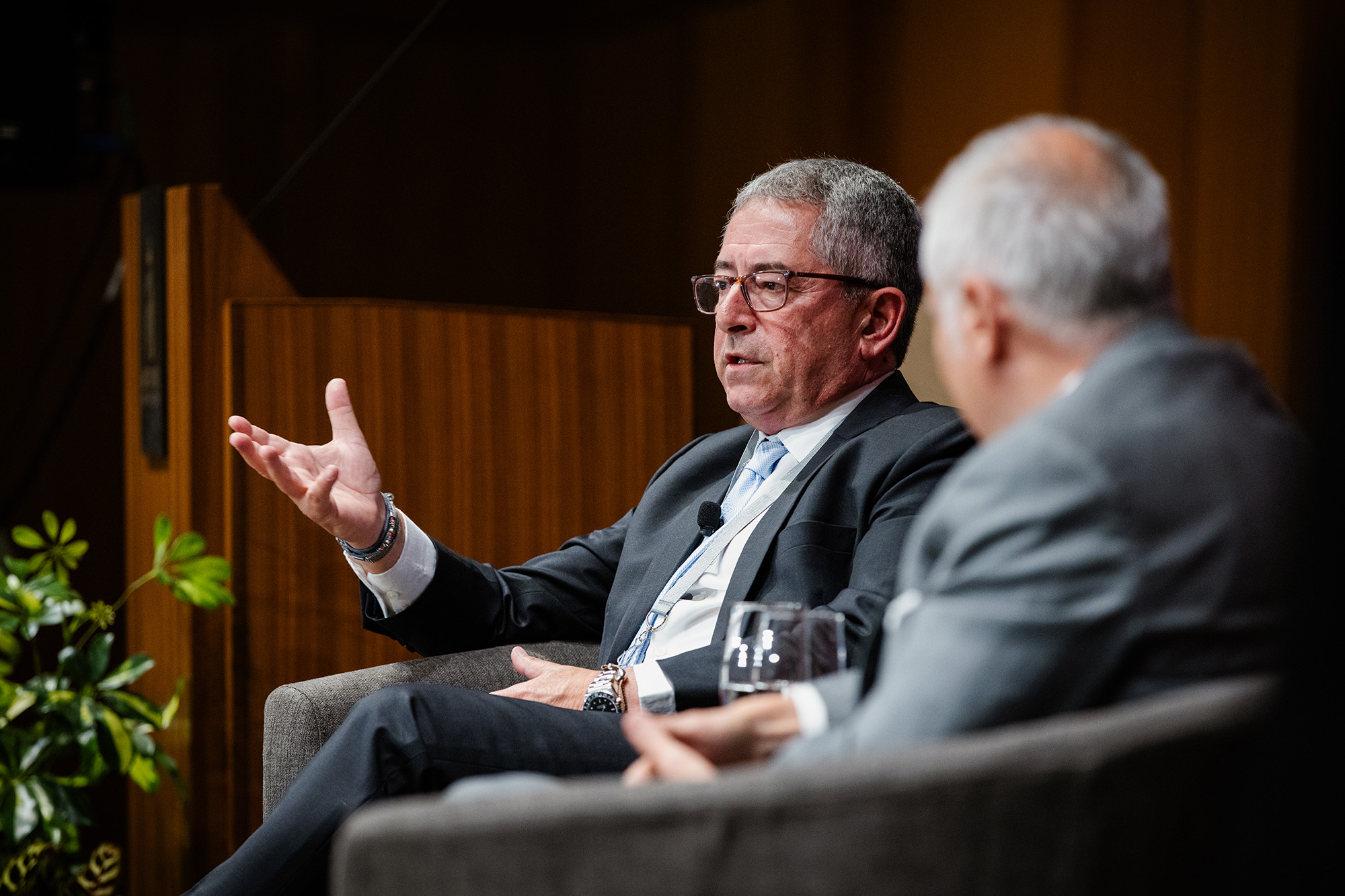
2025 Uncommon Commitment Awards, Presented by Director Condoleezza Rice
The Uncommon Commitment Award, the Hoover Institution’s highest honor, was established in 2000 to recognize individuals whose extraordinary leadership, service, and generosity have strengthened Hoover’s mission to develop ideas defining a free society.
On this occasion, Director Rice presented the awards to three distinguished members and longtime generous supporters of the Hoover community, including Shirley Cox Matteson and Tom and Barbara Stephenson.
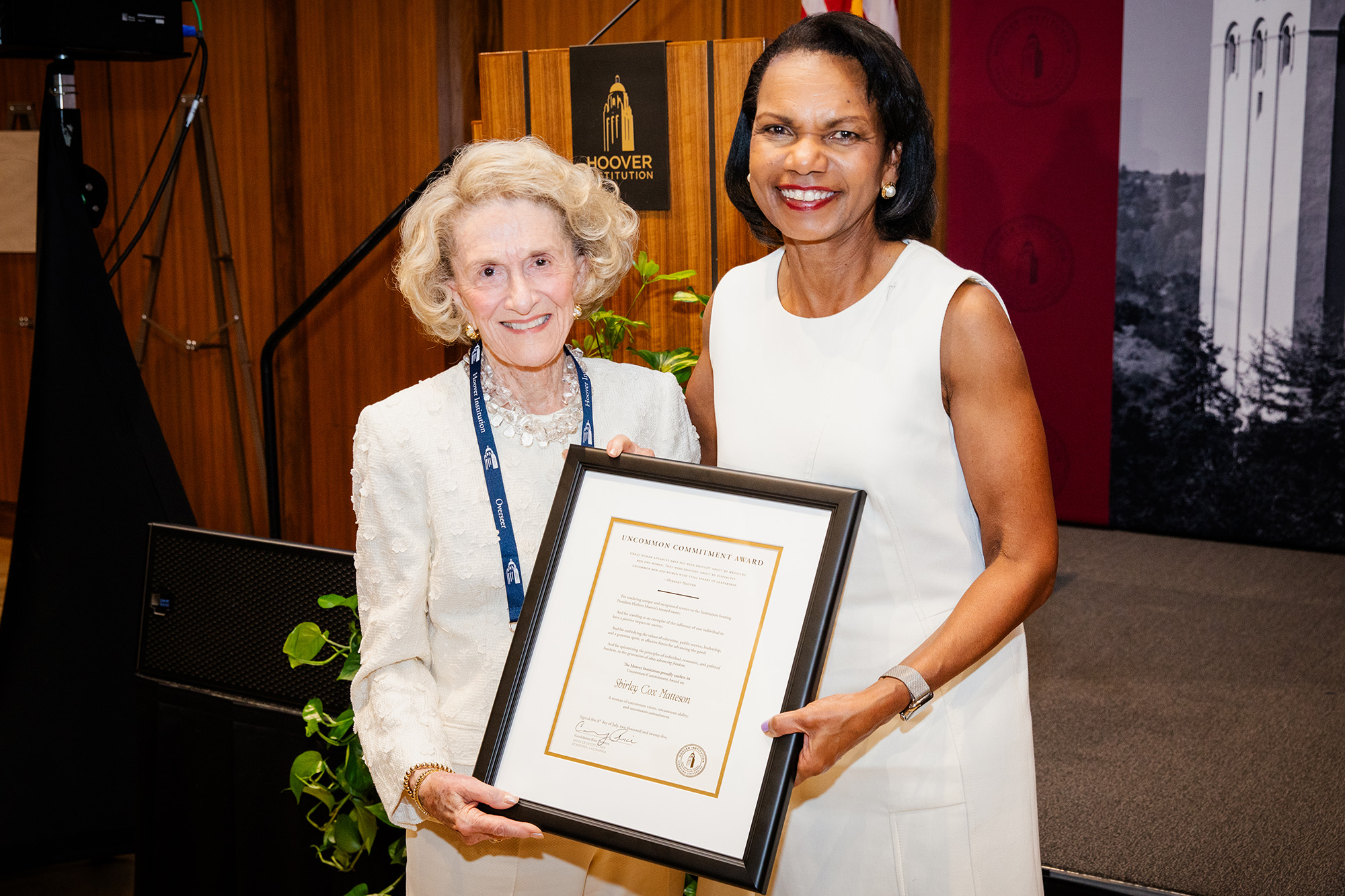
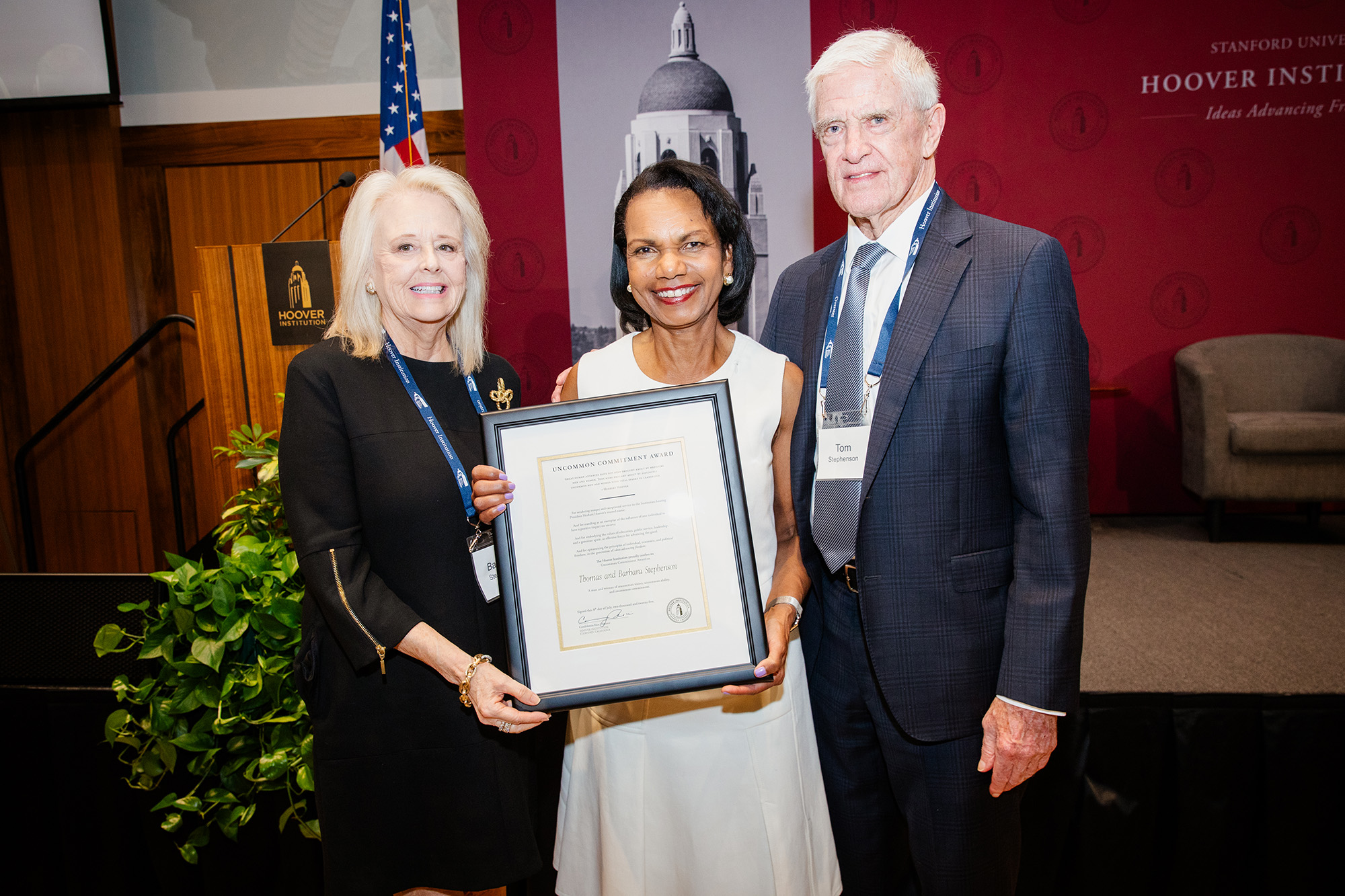
Amy Zegart on the Intersection of Technology and US Policy
Senior Fellow Amy Zegart discussed the fast-paced convergence of technology and US national security policy. She highlighted that much of Hoover’s influence on policy happens quietly, through opportunities such as briefings and “boot camps” for policymakers intended to bridge the knowledge gap about emerging tech and espionage. There has also been a substantial increase in courses taught by Hoover fellows at Stanford, making policy conversations on AI, robotics, and scientific research more accessible. She cited examples such as her own work about the rapid development and deployment of DeepSeek, a Chinese-developed AI system that outpaced traditional research cycles—underscoring the necessity of policy frameworks that accommodate accelerated technological progress.
She stressed that leadership must ask if we are racing merely to “be first” regarding AI and other frontier technologies or instead working to achieve responsible global adoption. Zegart also pointed out the significance of university-based research and the need for policymakers to safeguard this innovation engine, which remains under threat from global competitors and changing domestic economic dynamics.
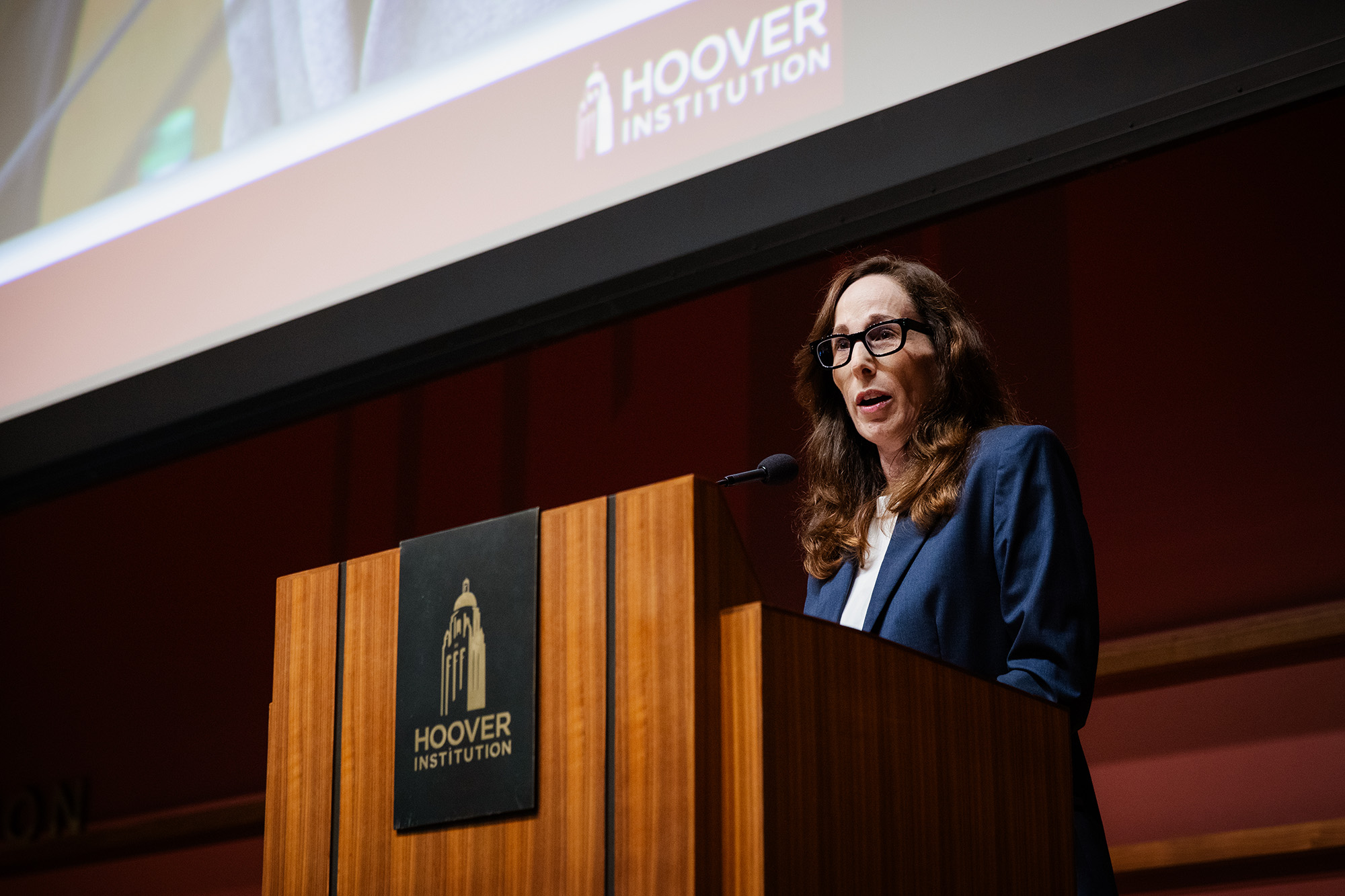
Eyck Freymann and Matthew Lowenstein on China and the World
Hoover Fellows Eyck Freymann and Matthew Lowenstein offered a sobering analysis of China’s current political and economic landscape, focusing on the acute challenges facing Xi Jinping’s government. Lowenstein, drawing on his past experience as an equity analyst in Beijing, emphasized that China’s most pressing problem is an ongoing consumer solvency crisis, rooted in the massive economic stimulus and property boom after 2008, where real estate and construction became a third of China’s economy. Lowenstein recalled a city in Inner Mongolia with a million new units at only 10 percent occupancy, which underscores the scale of excess and malinvestment.
Now, local governments, which historically depended on land sales for up to 40 percent of their revenue, face a fiscal crisis as the property market collapses. Centralized tax collection since 1994 leaves localities with little flexibility, forcing them to engage in increasingly desperate measures—like auctioning land, borrowing against land value, or even delaying salary payments to civil servants for months on end. Rising youth unemployment and private capital’s “strike” against long-term investment add to the economic malaise. Freymann and Lowenstein said that proposed solutions, such as granting local governments greater fiscal autonomy, are unlikely under Xi due to central power dynamics.
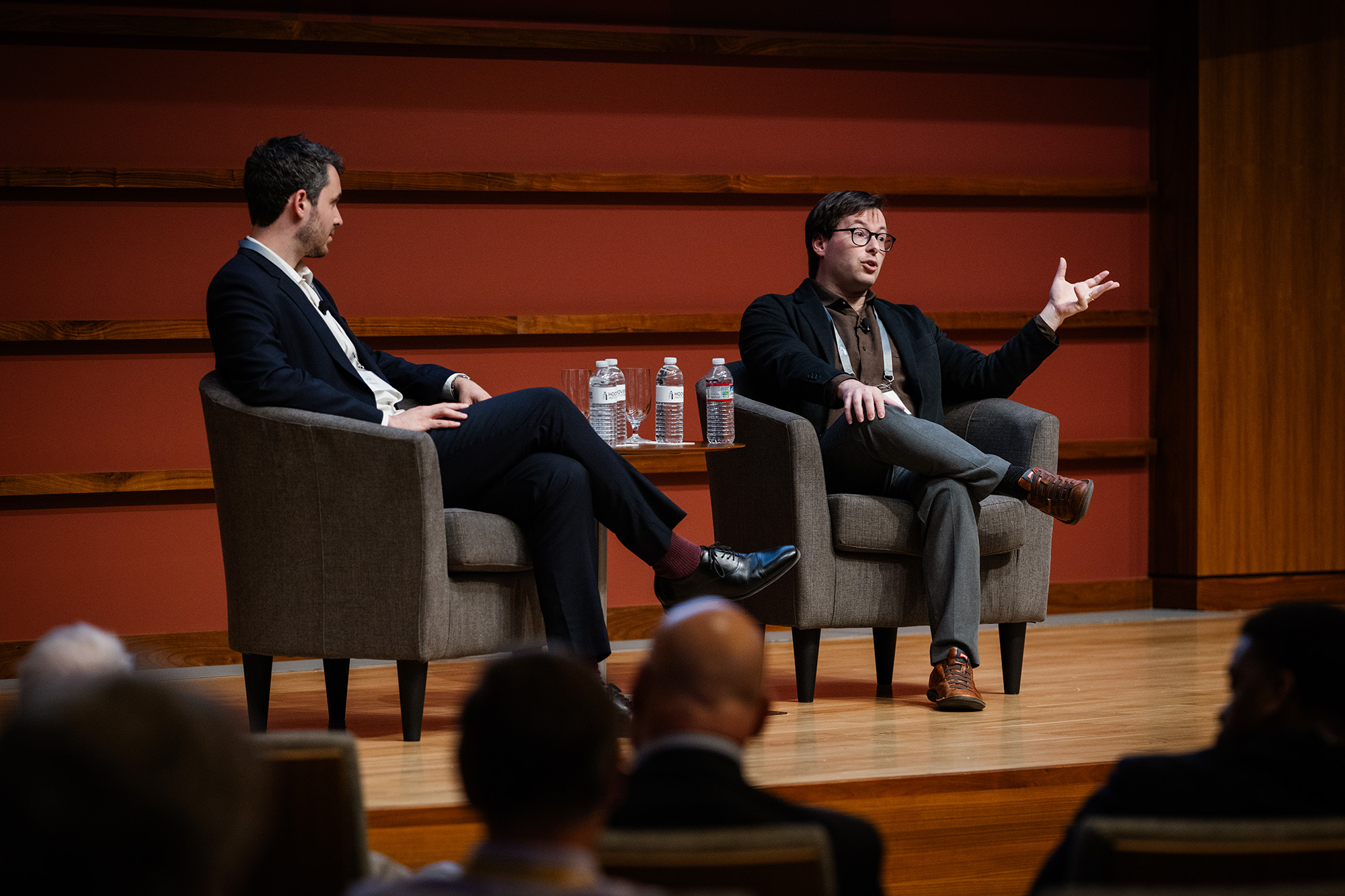
Jacob D. Light on the Future of US Higher Education
Hoover Fellow Jacob D. Light examined the challenges and transformations facing US higher education against the backdrop of political, economic, and technological upheaval. He detailed the scale and funding of the American university system, noting rising costs and the burden of student debt, which disproportionately affects graduate students. Universities are vital for workforce development—college graduates earn significantly more than nongraduates—and produce a substantial share of US research and Nobel laureates.
Light’s analysis showed that universities are slow to adapt course offerings in response to rapid labor market and technological changes, creating a gap in skills for emerging fields like AI. He demonstrated that overlap between college curricula and AI capabilities is increasing, especially at teaching-focused institutions. Additionally, higher education has faced increasing political scrutiny and a noticeable shift leftward in course content, most markedly at elite universities. Light concluded that while US institutions remain globally preeminent, they are under mounting pressure to reform and respond more nimbly to current challenges.
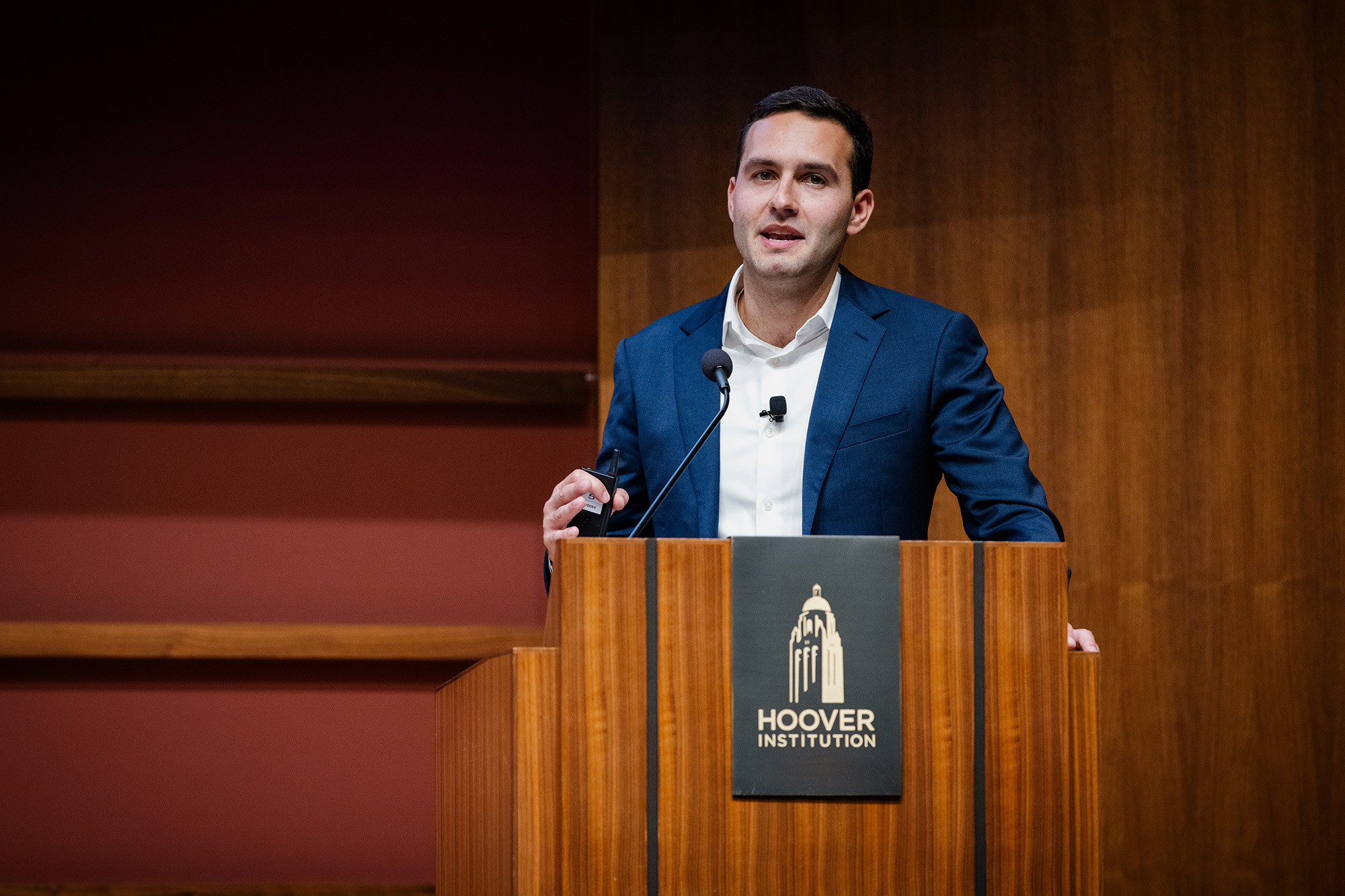
Joshua D. Rauh on the US Debt and Deficit
With federal spending as a share of US GDP now standing at 36 percent, Senior Fellow Joshua D. Rauh, chair of Hoover’s new Fiscal Policy Initiative, said US policymakers will soon need to consider ways to raise revenue and curtail spending, or else the US fiscal position will continue to deteriorate.
Federal debt is projected to reach 156 percent of GDP by 2055—indicative of a looming crisis. He reinforced the gravity of the situation by sharing polling data: 76 percent of respondents to a recent poll now believe federal debt is increasing at an unsustainable pace. Rauh’s analysis revealed that interest payments are set to consume 30 percent of annual federal revenue by 2035 and 36 percent by 2055 if rates remain low; should rates rise by just 1 percent in 2035 and 3 percent in 2055, interest could swallow all but 4 percent of the federal budget. Preventing this crisis will require new ways to control entitlement spending and increase productivity.
Rauh said that when you factor in how new tax breaks in the One Big Beautiful Bill may spur investment, alongside the revenue generated by tariffs on most imports, the whole bill “might be just shy of revenue neutral, albeit from a very, very bad starting point.”
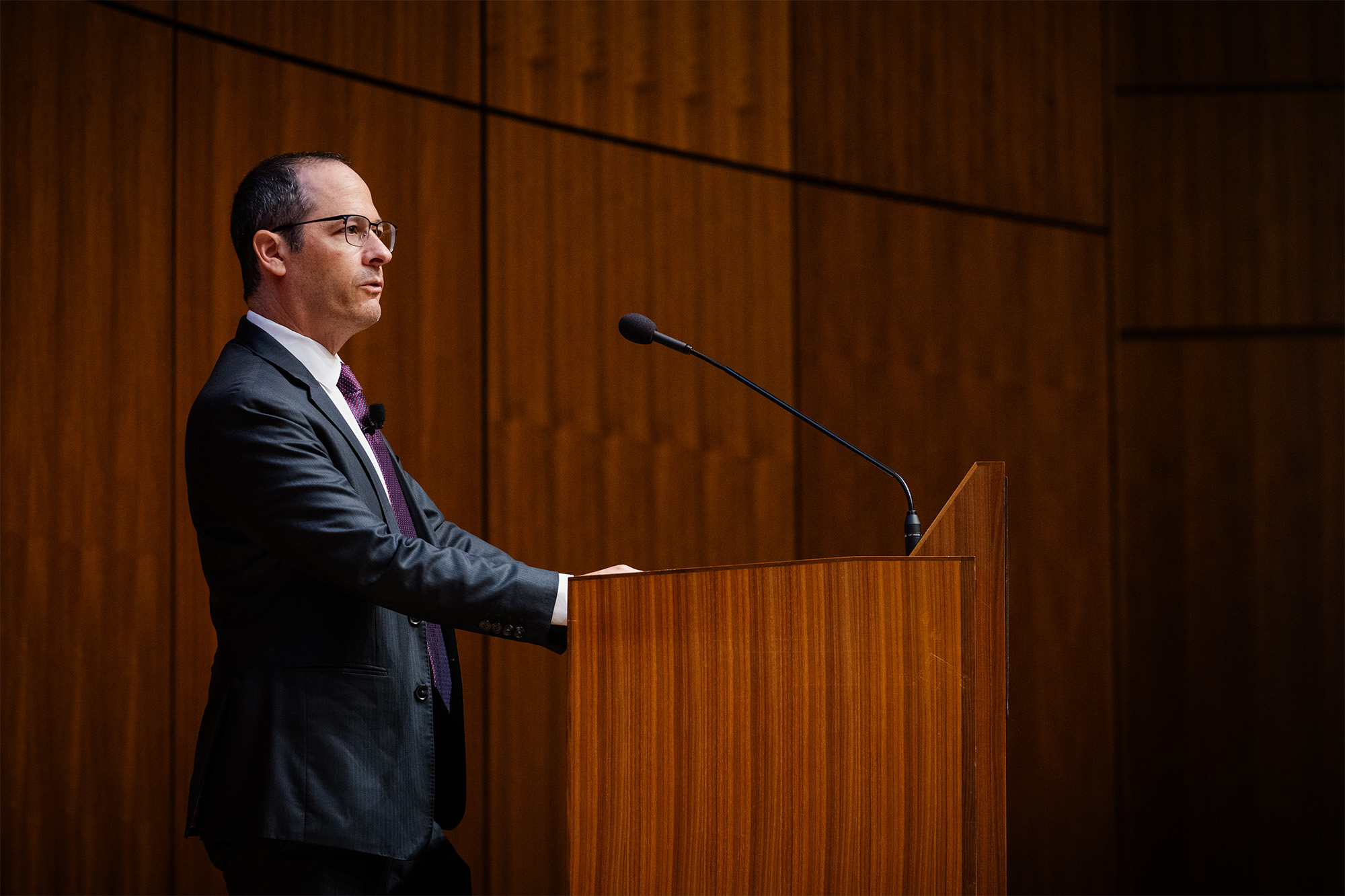
Navigating the Rise of AI: The Word from Washington and Silicon Valley
Speaking over dinner on July 9, Director Rice joined Sriram Krishnan, senior White House policy advisor on AI, and Mary Meeker, general partner at BOND Capital, to discuss the unprecedented rate of adoption and pace of change of AI, the Trump administration's policy toward AI, and how best to manage the challenges that come with this surging technology.
The conversation highlighted rapidly unfolding competition—especially centered around the United States and China—and the importance of advancing America’s global technological leadership for democracy and security, including via Washington’s policy levers. Meeker and BOND published an AI-related report in May, Trends—Artificial Intelligence (link), and Krishnan and the White House published a report in July, Winning the Race: America's AI Action Plan (link), that illuminate the challenges and make policy recommendations for the public sector.
